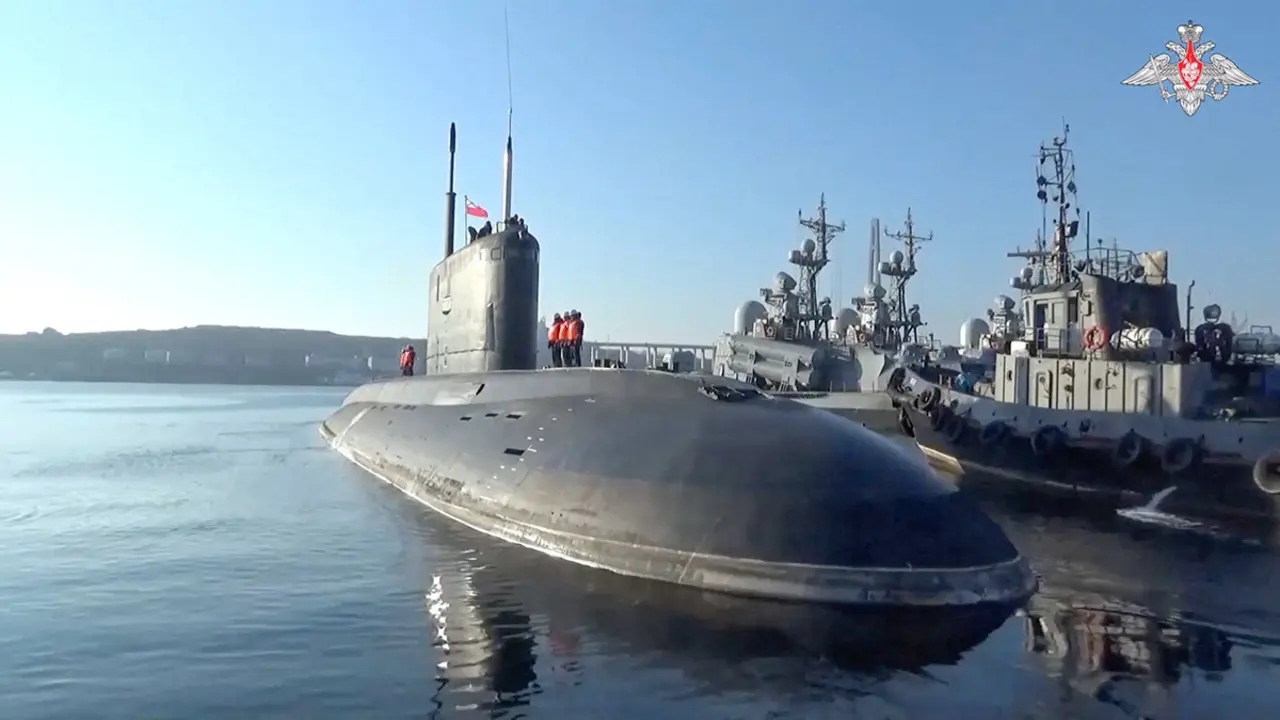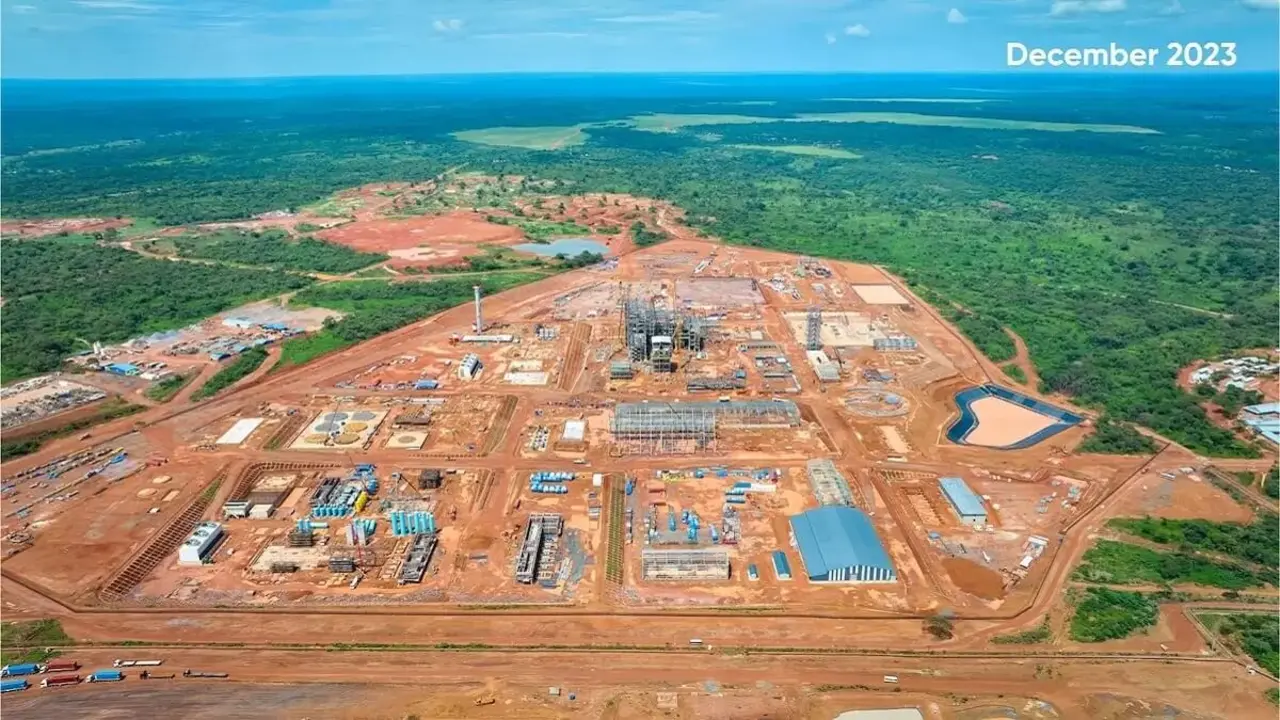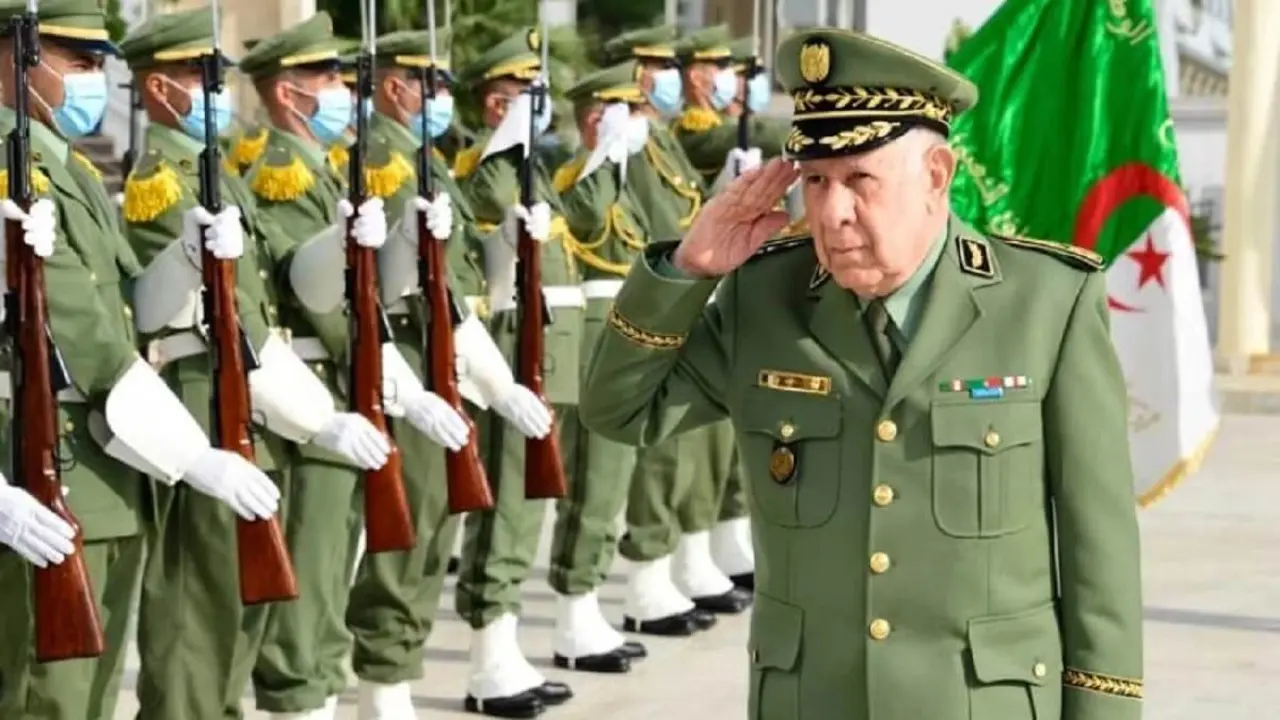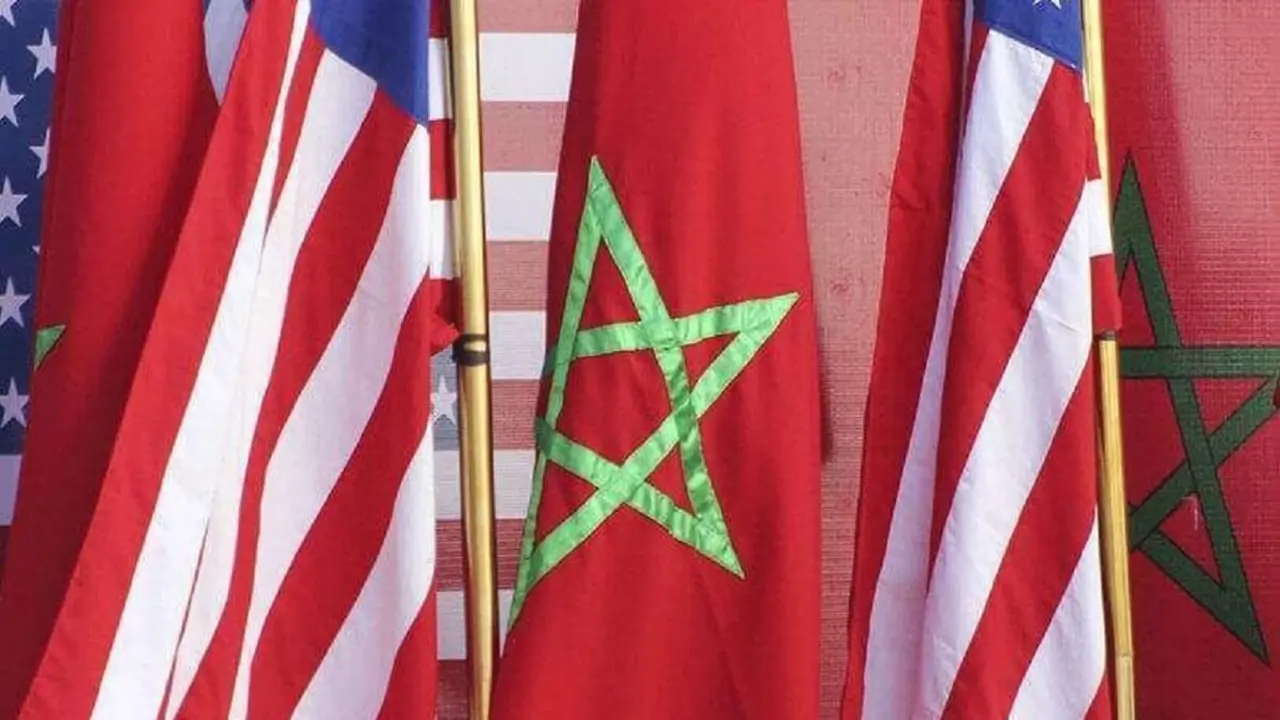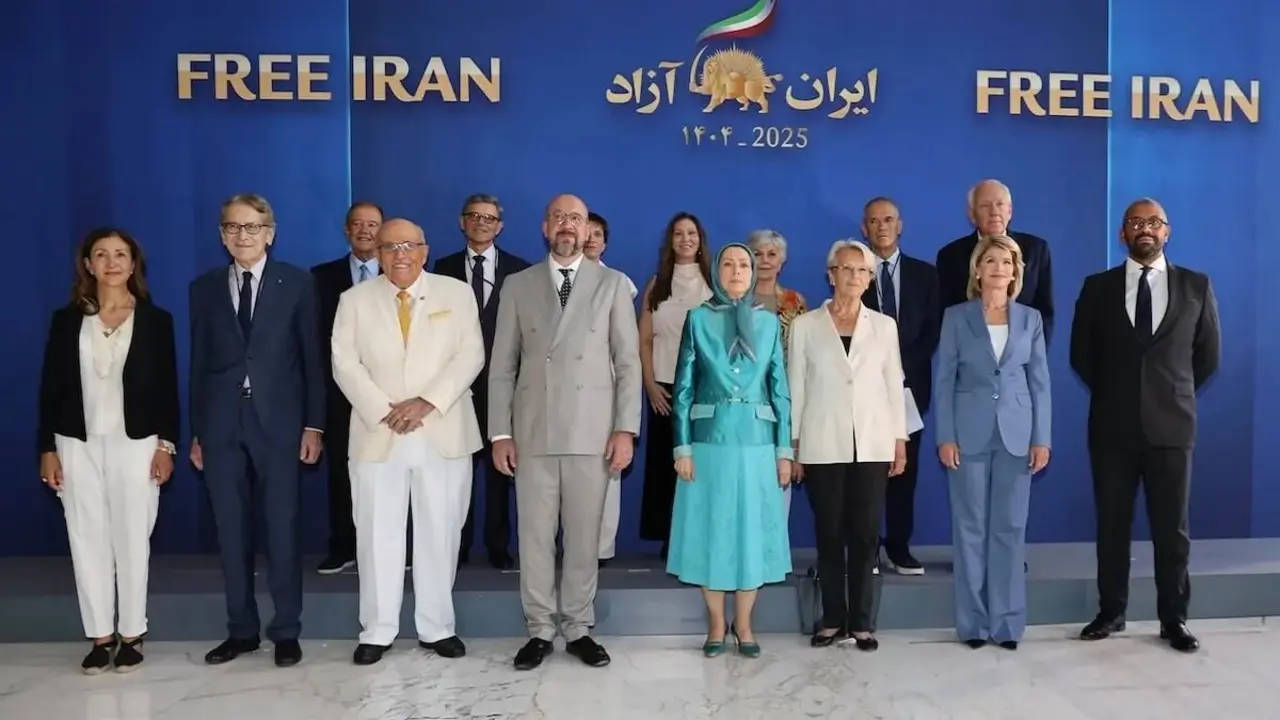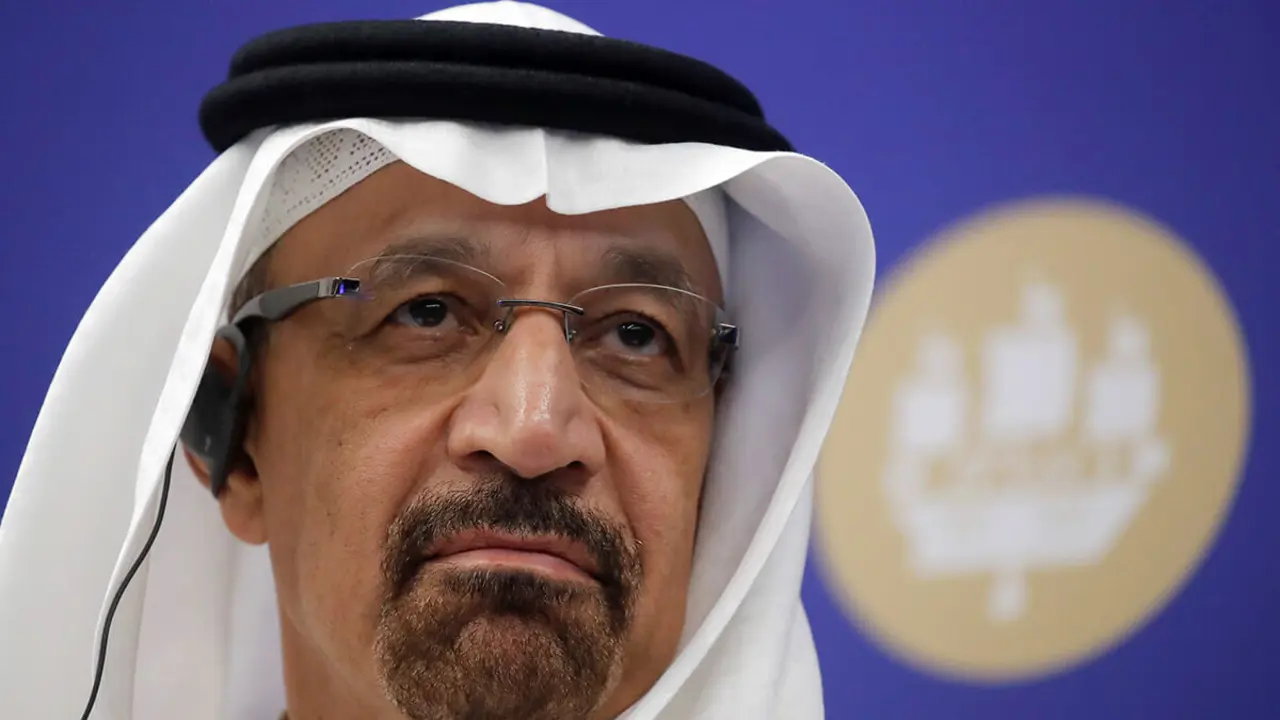Algeria: death of General Khaled Nezzar, the strongman of the bloody decade
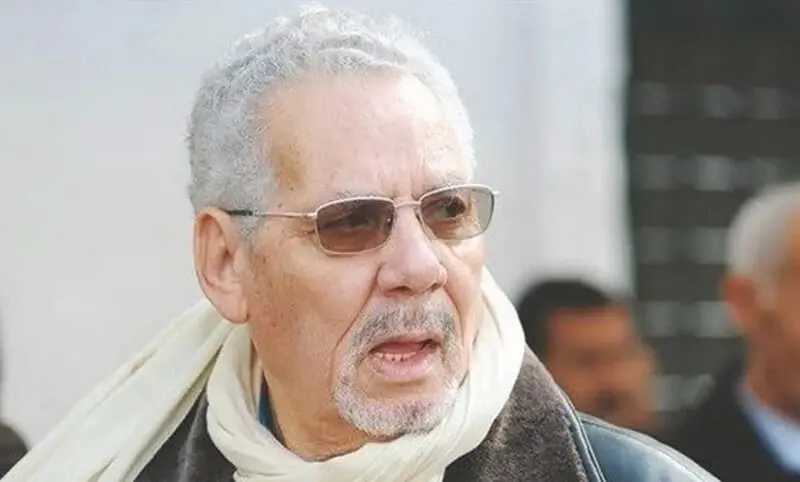
As soon as General Nezzar's death was announced, there was an outpouring of rejoicing on social networks, reflecting the unpopularity of the man who plunged Algeria into a bloody civil war in the early 90s. He was the most hated man on earth for millions of Algerians.
General Khaled Nezzar's name remains closely linked to the 250,000 innocent victims killed in a war Algeria could have done without, 20,000 missing, 10,000 men deported to camps in Algeria's far south under subhuman conditions.
For these crimes against humanity, Khaled Nezzar was due to appear before a Swiss court in Bellinzona from June 17 to July 19, 2024. The man has done a great deal of harm to Algerians. Even his own children. He shot their mother, Fatima Barakat, twice before their very eyes.
His son Sofiane, now in his forties, reminded him of this 4 years ago on his Facebook page, posting a photo of his mother. "His entire career, from birth to death, is strewn with crimes and betrayals," confides an observer familiar with the subject.
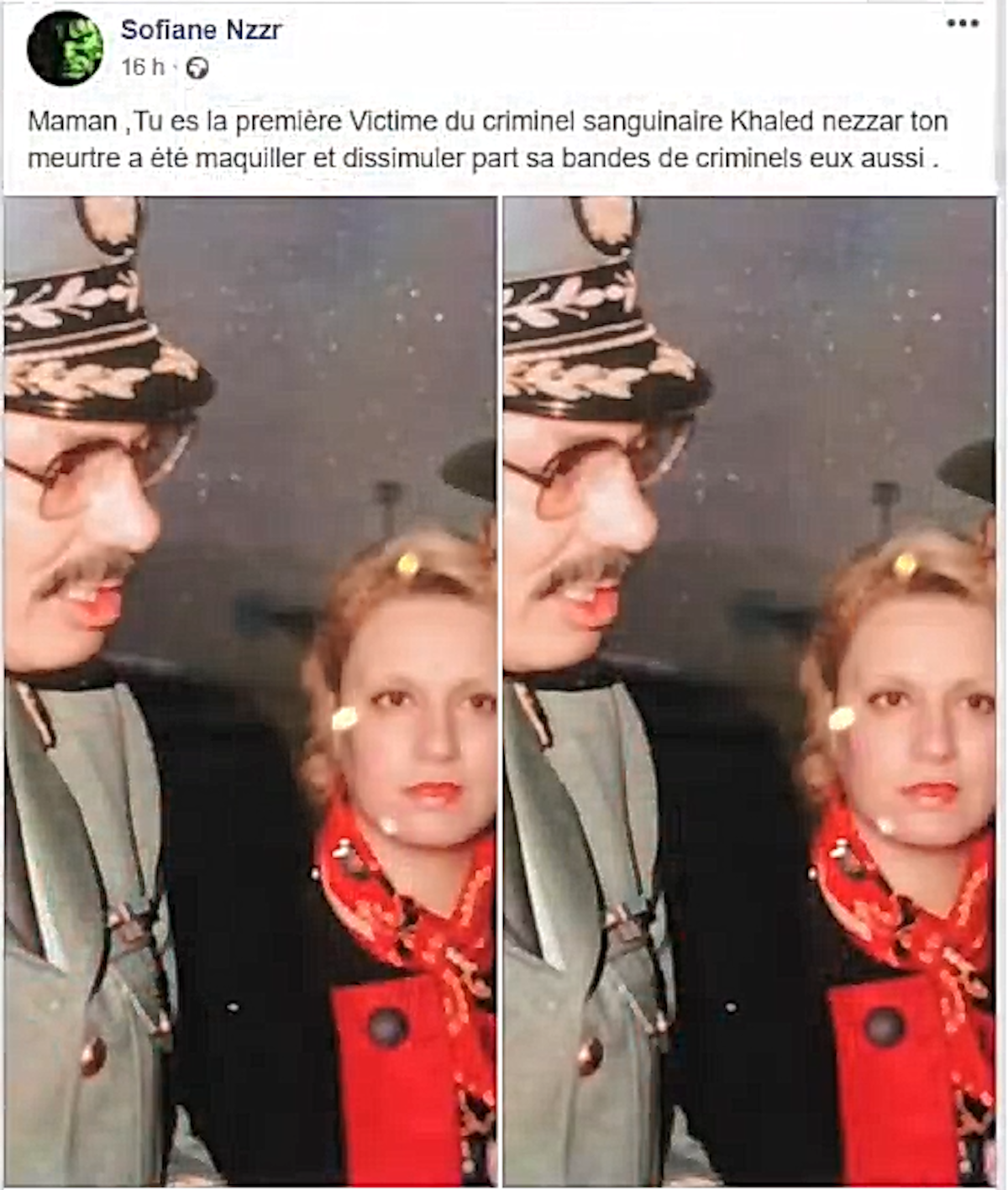
Born in 1937 in Seriana in the Aurès region, the cradle of the Algerian revolution from which the first shot was fired heralding the start of the armed struggle to regain independence, Khaled Nezzar did not see fit to follow in the footsteps of the hundreds of young Chaouias from his region who had taken up arms to fight the occupying forces.
At the time, he had been a non-commissioned officer in the colonial army since childhood. At the age of 12, his father, who had retired from the French army, enrolled him in the "enfants de troupe", after sending him to a school for settlers' children to avoid the "école indigène" reserved for natives 1.
His father Rahal Nezzar, decorated with the French Army Cross of War, did not hesitate to take up arms with twelve of his comrades a fortnight after the outbreak of the Algerian war, against the maquisards of the national liberation army. The next day, the colonial press described these collaborators as "brave".
In April 1958, Khaled Nezzar was promoted by Lacoste 2 to the rank of second lieutenant. From there, he set off to infiltrate the Armée de Libération Nationale (National Liberation Army), like many of his peers who presented themselves as officers deserting the French army.
Many of them were at the helm of Algeria in the late '80s under the late Chadli Benjedid. Among them were Generals Larbi Belkheir, Mohamed Lamari, Mohamed Touati, Hocine Aït-Abdessalem and others.
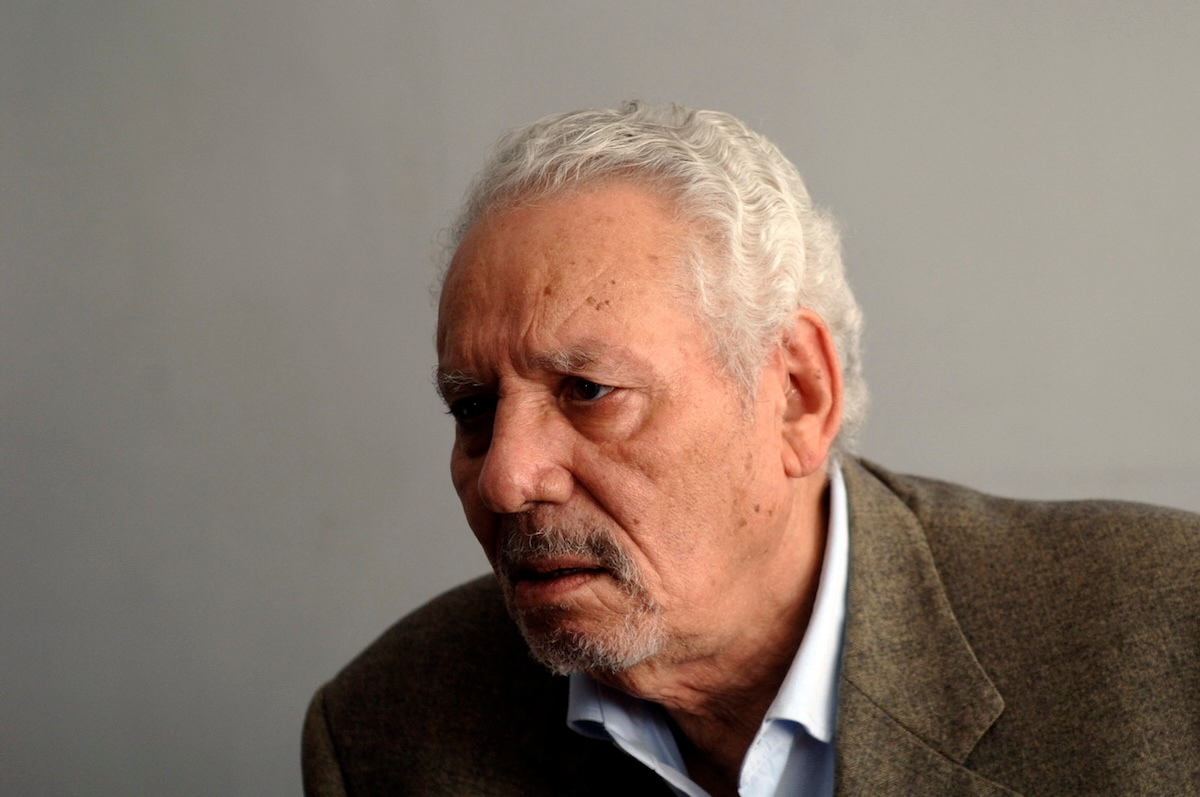
In fact, it was these officers who met in conclave at the Ecole Nationale des Ingénieurs et Techniciens d'Algérie - ENITA (a military academy located at Bordj El-Bahri in the eastern suburbs of Algiers) to propose Colonel Chadli Benjedid, then head of the 2nd military region, as the successor to Houari Boumediène at the head of the Algerian state. It was a tailor-made succession, since Chadli Benjedid, hardly experienced in political affairs, was to delegate all his powers to Major Larbi Belkheir.
Belkheir had worked under Chadli in the 2nd military region before being appointed head of ENITA. He was to be the country's real decision-maker, in association with Nezzar, Lamari and their fellow "deserters", commonly known as DAF (Déserteurs de l'Armée Française).
On November 16, 1988, Khaled Nezzar was appointed Chief of Staff of the Algerian Army. This was just over a month after the riots of October 5 of the same year. During these events, he distinguished himself by savagely repressing the demonstrators, giving orders to shoot into the crowd.
Some 500 people were killed. In a speech delivered on October 10, President Chadli Benjedid took responsibility for the massacre, declaring "it was I who gave the order to fire". It was a way of saving General Nezzar's head in the face of the National Liberation Army's general officers, who had a visceral hatred for him.
Two years later, he was appointed Minister of National Defense. A decision which caused great unease within the Algerian army. Invited by General Betchine, then head of the secret services, to defer this decision, which provoked the ire of the ALN generals, headed by General Kamel Abderrahim, Chadli Benjedid maintained his decision and sent a dozen ALN generals, including General Mohamed Betchine, into retirement.
As a reward, Nezzar deposed him on January 11, 1992, forcing him to resign. An unconstitutional High State Committee was set up, with 5 members including Khaled Nezzar and Mohamed Boudiaf recalled from his Moroccan exile.
This was followed six months later by the public assassination of Boudiaf, one of the architects of the creation of the FLN and the reconquest of Algerian independence.
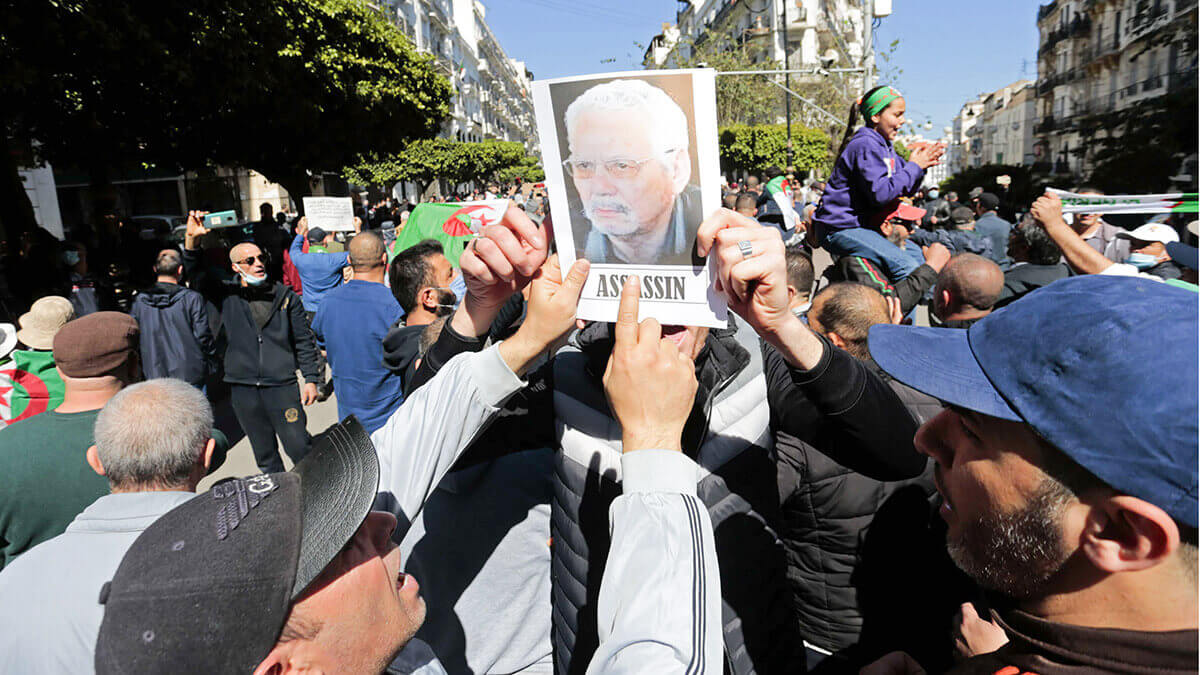
Khaled Nezzar, who used the Western Sahara affair as a survival tool for the military regime to plunge the country into a long civil war, did not hesitate to commit the irreparable. To betray a historic man and kill him. He was also behind the assassination of Kasdi Merbah, the former head of the secret services under Boumediene, in August 1992.
During ten years of civil war, Khaled Nezzar, unscrupulous and lawless, crushed everything that stood in his way. He put Algeria to the sword without the slightest remorse. His alibi was "to save the republic from Islamism". The result of this rescue is well known.
His disappearance was greeted by millions of Algerians with satisfaction, but also with regret that he was not brought before the Swiss courts for his crimes against humanity. In any case, history will record that he was the first high-ranking Algerian officer to be arrested in Geneva, handcuffed and taken to a police station where he was held in custody for several hours.
He was humiliated on another occasion when he was questioned for three days by the Federal Prosecutor in Bern, who did not fail to belittle him during a confrontation with the complainants.
Other generals will have to reflect on the end of Khaled Nezzar.
1 - In the memoirs of General Khaled Nezzar, Editions Echihab, 1999
page 29
2- Idem: page 32


